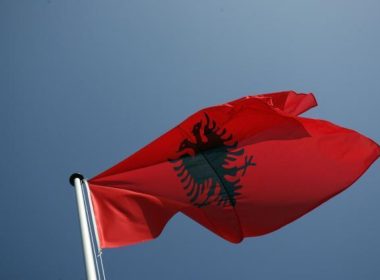Albania’s Local Elections Have Sparked An Explosive Political Crisis

The President and the Prime Minister are divided over whether local elections should take place as originally scheduled this Sunday, with the former attempting to postpone them until October after the opposition promised to boycott the polls while the latter insists on holding them anyhow and ordered his parliamentary allies to initiate impeachment proceedings against the head of state in response.
Albania’s local elections have sparked an explosive political crisis in the West Balkan country after the opposition’s promise to boycott the polls pitted the President against the Prime Minister in an ever-worsening feud that threatens to turn violent this weekend. The Democratic Party withdrew from parliament in February to protest the ruling Socialist Party’s alleged corruption and ties to organized crime, and their leader Lulzim Basha is convinced that the upcoming local elections will be stolen in order to entrench Prime Minister Edi Rama’s power nationwide.
Without the Democrats’ participation, this Sunday’s elections lose their international legitimacy, which is why the Council of Europe recently announced that it’s withdrawing its monitoring mission. Whether a coincidence or not, Germany refused to advance Albania’s EU membership bid earlier this month too. Keeping in mind the deteriorating domestic political context in which these elections would prospectively be held, President Ilir Meta attempted to cancel them and postpone the vote until October in the hopes that the crisis could be resolved by then with the opposition’s return to parliament and their participation in the polls.
This effort was shot down by the parliament even though the President said that only the Constitutional Court has the authority to decide on his decrees, which prompted Rama to order his legislative allies to begin impeachment proceedings against Meta for trying to stop the elections. In turn, Meta reminded Rama that it’s he who’s the country’s supreme commander, hinting that he might resort to using the military to resolve this crisis. There might not be any choice either since the Democrats declared that they’ll actively prevent this Sunday’s vote from taking place, which raises fears of a violent scenario transpiring.
As Albania lurches towards what might eventually turn into a civil conflict, the rest of the region can’t help but feel alarmed. The concept of so-called “Greater Albania” is a myth to preserve the country’s unity and create a common cause around which to rally its distinct Gheg and Tosk people, and seeing as how Rama has a history of exploiting this ultra-nationalist sentiment from time to time in order to distract from domestic problems, it can’t be ruled out that his supporters might stage provocations in the neighboring countries of Greece, Macedonia, Serbia, and/or Montenegro for the purpose of rallying all Albanians to their side in this dispute.
Even if that speculated scheme succeeds, it might not be enough to win over the international community on which the practical legitimacy of Albania’s government depends. The chief advisor of Germany’s Christian Democratic Union recently spoke out against the country’s “mafia government” after his national media leaked tapes purporting to prove that Rama’s party was engaged in vote-buying and voter intimidation, signaling that the EU’s de-facto leader is tacitly siding with the opposition and believes that the Socialists need to make concessions in order to avoid a full-blown crisis.
It’ll ultimately depend which side the US decides to back, however, since Washington is the real power broker in Tirana, but there are indications that it might follow in the EU’s footsteps. The US Embassy released a generic statement earlier this week that could be interpreted as playing it safe and not taking any side at this point, which is important in and of itself because it shows that the Socialists don’t have the full support of the Trump Administration, possibly also due to Rama’s connections to the President’s hated foe George Soros. As such, should violence break out on Sunday like the Embassy predicts, then the US might decisively turn against him.
What’s most important to the US is Albania’s political stability, which can only be assured through a free and fair electoral process following the success of the opposition’s enormous grassroots campaign in finally pressing this issue and forcing Washington to pay attention to the people’s demands. Albania’s possible descent into civil conflict couldn’t come at a more strategically inconvenient time for the US since it’s presently trying to implement “geopolitical reform” in the Balkans by pressuring Serbia to recognize Kosovo’s “independence”, but Vucic might walk back his gradual progress in this respect if his country’s neighbor slides into a sudden crisis.
Therefore, it’s not unforeseeable that the US might pull its support for Rama under certain scenarios in order to salvage the “larger prize” of reshaping the “New Balkans”. Albania is the lynchpin of this regional vision, but its pursuit of the shared goal of “Greater Albania” must be done in an systematic fashion, not through the type of risky ad-hoc provocations that Rama might resort to for the short-term interest of emerging victorious in the latest political crisis. Although he was an important asset for assisting the US’ strategic designs in the region over the years, he’s nowadays turning into a liability, thus raising the prospects of his patrons turning on him.
*
Note to readers: please click the share buttons above or below. Forward this article to your email lists. Crosspost on your blog site, internet forums. etc.
Andrew Korybko is an American Moscow-based political analyst specializing in the relationship between the US strategy in Afro-Eurasia, China’s One Belt One Road global vision of New Silk Road connectivity, and Hybrid Warfare. He is a frequent contributor to Global Research.

